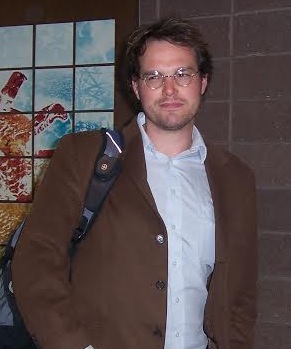
Country: Canada
I am originally from New Orleans, Louisiana and moved to Newfoundland in 2015. With a research and professional background in indicators of sustainable communities, I hope to employ these tools in efforts for rural coastal communities to evaluate and promote their own sustainability. My research examines asset mapping and sustainability assessment tools that have been used in rural Newfoundland and Labrador (NL) and other rural coastal regions, in which I seek to determine what role these processes can play in rural governance and sustainable regional development. This research specifically focuses on how rural and resource-based regions in NL and similar jurisdictions can identify and mobilize their local assets to help tell authentic stories that promote well-being and sustainability. Using an asset-based approach to understanding the sustainability of rural regions, my research aims to identify how rural NL regions can draw on their existing capacities to foster new place-based development opportunities while challenging narratives of decline about rural communities with stories of community pride and strength. Within this broader focus, I am particularly interested in the use of sustainability indicators as asset identification and evaluation tools, and how rural regions can use them to tell new stories about their communities and identify new assets for use in sustainable community and regional development.
My PhD research is focusing on the Great Northern Peninsula region of Newfoundland, a remote northern region where previous work has been done to conduct asset mapping of regional assets and where significant regional governance efforts have taken place in communities. I'm working with Drs. Kelly Vodden (Environmental Policy), Ratana Chuenpagdee (Geography), Doug May (Economics), and John Dagevos (Telos Brabant Centre Netherlands).
Q: What are you currently working on within the context of small-scale fisheries?
From a transdisciplinary research perspective focusing on sustainable community development in rural coastal regions, fisheries are one of many sectors and ways of life that are relevant in my examination of community assets and stories. In rural coastal communities of Newfoundland and Labrador, small-scale fisheries were historically at the heart of community life and identity. Now the role of fisheries is much smaller in terms of the economic basis of rural NL, but inshore fishing and processing remain important parts of community identity and culture. In the work I am doing on the Great Northern Peninsula, historical narratives about the region are intrinsically linked to traditional fishing activities that were carried out by different European groups over the last 400 years. The regional asset mapping work that I am doing in partnership with regional stakeholders aims to explore how these historical narratives can be harnessed alongside more tangible assets to identify new regional development opportunities and highlight the strengths of the region.
Q: If you could single out one or two most significant factors for securing sustainability of small-scale fisheries, what would these factors be?
I think it's vital that small-scale fisheries be researched and managed within the context of the communities that they occur in through a multi-sectoral and transdisciplinary approach. Many of the threats to the viability of small-scale fisheries fall outside of the traditional questions and problems that fisheries science can answer, or are the result of complex interchanges between the fisheries sector and other sectors that coastal communities rely on. In the context of rural Newfoundland and Labrador, challenges like population decline and dependence on fossil fuels often threaten small-scale fisheries and fishing communities much more than issues within the fishery itself. In order to enhance the sustainability of rural coastal communities, these challenges must be addressed using an integrative and transdisciplinary approach that engages all relevant stakeholders within fishing communities and beyond.















